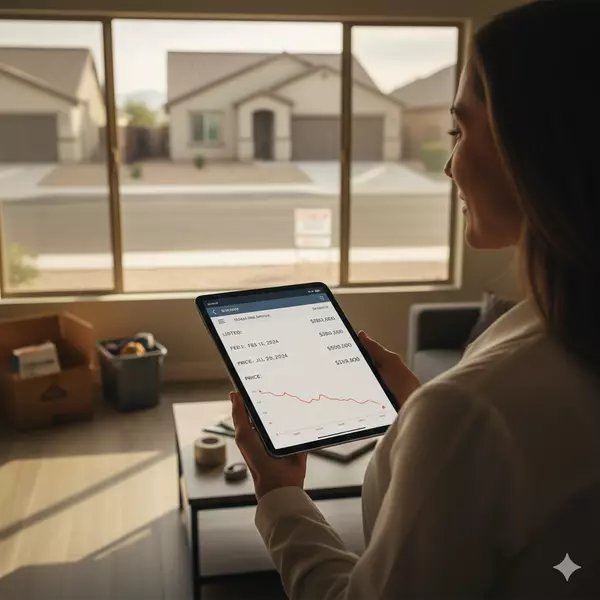Price Drops in Las Vegas Real Estate: How to Spot the Real Deals
Let me tell you something most buyers overlook—price drops are like breadcrumbs leading you straight to opportunity. While everyone's busy chasing the shiny new listings in Summerlin or Henderson, the smart money is watching what's getting cheaper. And trust me, after selling homes in Las Vegas for years, I've seen this pattern play out dozens of times.
Here's the thing. When a seller drops their price, they're telling you a story. Maybe the home's been sitting for 45 days and they're getting nervous. Perhaps they already bought another place and need to move fast. Or sometimes—and this is the fun part—they just priced it wrong from the start and finally got realistic.
Not all price drops are created equal, though. A $5,000 reduction on a $600,000 house? That's basically nothing. The seller is testing the water with their pinky toe. But a $30,000 cut? Now we're talking. That's blood in the water, and you should be circling.
I had a client last month who nabbed an incredible deal on a home near Red Rock. The property dropped twice—first by $15,000, then another $20,000 three weeks later. We swooped in after that second drop with a respectful but firm offer. Guess what? The sellers took it within 24 hours. They were motivated, and we read the signals correctly.
So how do you actually track these price drops without going crazy? Start by setting up alerts on Zillow or Realtor.com for your target neighborhoods. Even better, work with an agent who has access to the MLS and can set up custom searches. We can see price history, days on market, and other juicy details the public sites don't always show clearly.
Pay attention to the timing too. Homes that drop during slower seasons—like late November or July when it's hotter than Satan's sauna out here—often mean more serious sellers. They're not waiting for ""spring market."" They want out now.
Another pro tip? Look at how many times a property has dropped. One reduction could be strategic. Three or four? That seller is practically waving a white flag. You've got negotiating power there, my friend.
Here's what kills me though. People see a price drop and assume something's horribly wrong with the house. Sometimes? Sure. Termites, foundation issues, or a neighbor who collects garden gnomes aggressively. But often it's just bad initial pricing or changed circumstances. Get an inspection regardless—I'm not saying throw caution to the wind—but don't automatically run scared.
The Las Vegas market moves fast when it's hot, but even when it cools down, good properties still sell. The ones that don't? They adjust. And those adjustments are your golden ticket to getting more house for your money or landing that dream location you thought was out of reach.
Bottom line: Want leverage in this market? Watch the price drops. That's where deals live. Every price cut is a signal—read it right, and you'll score. Read it wrong or ignore it completely, and you'll be the person overpaying for the house that sat pretty at full price while everyone else was busy being stubborn.
Now get out there and start hunting. Those price drops aren't going to find themselves.
Las Vegas Real Estate Price Drops FAQ: Spotting Deals and Negotiating Tips
Categories
- All Blogs (155)
- Anthem (1)
- Buyers (4)
- Downsizing (12)
- Expired Listings (1)
- Housing Market Trends (91)
- Informative (20)
- Luxury (1)
- MacDonald Highlands (1)
- Madeira Canyon (1)
- Mountains Edge (9)
- Probate (5)
- Queensridge (1)
- Relocation (2)
- Sellers (3)
- Summerlin (11)
- Sun City Summerlin (1)
- Thoughts on Home Tour (2)
Recent Posts










GET MORE INFORMATION

